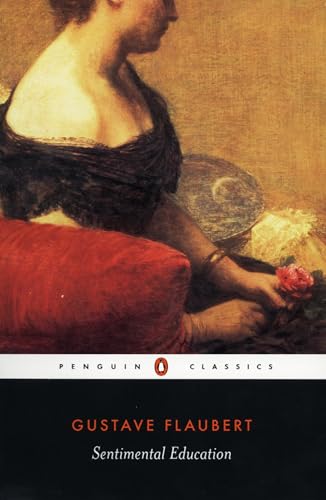It’s not every day that a callow, romantic writer transforms into a trailblazing, acute, realistic observer, right in front of your very eyes.
In autumn 1849, Gustave Flaubert, 27 and full of poetic longing, left northern France for Egypt. Accompanied by his compatriot Max and with a servant or two in tow, Flaubert would spend that winter and most of the following year traveling the Nile from the Mediterranean to the Sudanese border, then up again pausing for a quick jaunt through the desert to the Red Sea.
Journals were diligently kept, both by Flaubert and Max; letters were written – guarded, wistful ones to Flaubert’s mother, and more exuberantly bawdy ones to his friends.
 Flaubert In Egypt pulls together these various strands and stands at once as 19th century Egyptian travelogue, youthful memoir, geopolitical Middle Eastern history, and literary artifact – the nexus of Flaubert the youthful romantic and Flaubert the keen-eyed realist. His journal writing honed his critical eye. Madame Bovary and Sentimental Education were still years ahead of him, but their seeds were sown here.
Flaubert In Egypt pulls together these various strands and stands at once as 19th century Egyptian travelogue, youthful memoir, geopolitical Middle Eastern history, and literary artifact – the nexus of Flaubert the youthful romantic and Flaubert the keen-eyed realist. His journal writing honed his critical eye. Madame Bovary and Sentimental Education were still years ahead of him, but their seeds were sown here.
It was a romantic Gustave who hesitantly left the family cocoon. So reluctant was he to embark on this epic journey that, on the train from Rouen to Paris, he contemplated canceling all his plans and returning home. He envisioned the look on his mother’s face, her surprise and joy. Fortunately for us, he resisted this temptation.
Once in Egypt, his romantic imagination was put to the test, challenged by the reality around him. In a letter home, he claimed to be little impressed by Egypt’s sun and sand, but greatly impressed by its cities and people. And why? Because Flaubert had previously given more thought to nature. Consequently, this wound up being more of a rediscovery, and it didn’t particularly surpass what had been in his head. However, he’d given no prior thought to people and cities – so this was new, an awakening. And above all, he was fascinated by what he called “the grotesque.” This he hadn’t counted on at all – slaves, thieves, pimps, hawkers and whores. These fascinated him. Egypt, he wrote, “is a great place for contrasts: splendid things gleam in the dust.”
In a letter to his mother, he poses the question whether Egypt is what he imagined it to be? Yes, and more, he responds. It extends beyond his narrow presumptions. Facts have taken the place of suppositions. There’s a passage written four years before the trip, written entirely from his imagination, about climbing a pyramid. This is juxtaposed with an excerpt from his Egyptian journals. The realistic on-the-spot description stands in stark contrast with the romantic poetry of the early passage.
We also get a glimpse of Gustave the son, when in a letter home he broaches the subject of getting a job, something his mother has long lobbied for. Then he launches into a lengthy response detailing precisely why this would be inadvisable, why he was ill-suited to anything that would likely please his family. It’s a marvelous piece of argumentative prose. If I had read this when I was in college, I would likely have cribbed it and sent it off to every adult member of my family.
In addition to reading this as personal memoir, travelogue, and history – both geopolitical and literary, as if that wasn’t enough, there is yet another level of reality that hits you when you read this. At one point, in mentioning the Sudan, Flaubert mentions Darfur. Immediately, I was thrown out of the 19th century narrative and into Sudan’s modern hell. Curious, this. A writer does his best to tightly weave his narrative to keep his faithful reader in his clutches. He knows there will be various layers of subtext. He must also know that, especially for future readers, something written might unintentionally trigger this momentary escape from the writer’s narrative to the reader’s reality. I suppose all he can do is make damn sure his writing is gripping enough to lure him back. And fast.
Flaubert In Egypt also contains some of the earliest photos I’ve ever seen. Flaubert’s friend Max traveled with a “photographic apparatus,” to the amusement and amazement of Flaubert, and a half-dozen shots from 1850 are included in the book.
One quibble: there is no map, at least not in the Penguin edition that I have. And for an obsessive map-aholic such as myself, this oversight borders on the criminal. Fortunately, one of my trusty atlases allowed me to chart Flaubert’s course, chapter for chapter. But I mean really… no map? What were the editors thinking?
Still, for a book that I didn’t even know existed, that I stumbled on and unearthed in a second-hand book shop, Flaubert In Egypt is a hell of a find. Splendid things gleaming in the dust, indeed.




